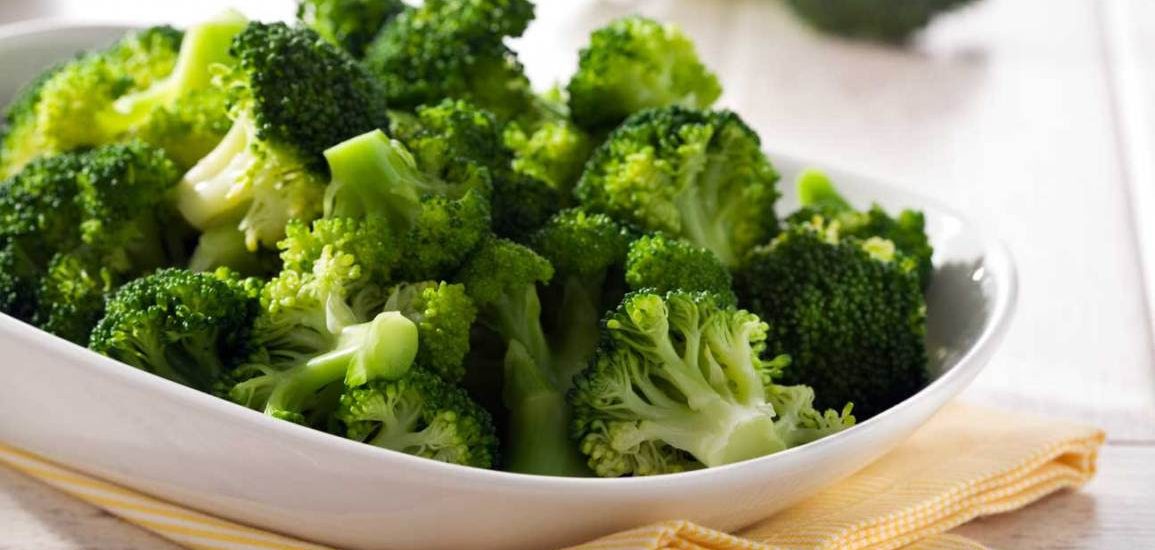Broccoli offers disease-fighting nutrients that can decrease signs of aging, among other benefits.
You know that broccoli is good for you. It’s probably one of the top foods that come to mind when you think about healthy eating. But you may not be aware of just how beneficial this cruciferous vegetable is for your health, or the various (and delicious) ways you can incorporate it into meals, snacks, and yes, even drinks. Here’s a summary of this superfood’s perks, and easy ways to eat more of it every week.
Broccoli has a bounty of nutrients
One cup of raw broccoli contains just 25 calories, less than 5 grams of carbohydrate, no fat, and a few grams of plant protein. Even so, broccoli is chock full of nutrients. One cup cooked provides nearly 250% of the daily target for vitamin K, which helps blood clot and is needed for bone health.
That same size portion also provides 135% of the daily goal for immune- and collagen-supporting vitamin C, over 50% of the target for chromium, a mineral that supports energy metabolism and blood sugar regulation, and over 40% for folate, a vitamin linked to memory and mood.
A cup of cooked broccoli also supplies over 10% of the daily need for vitamins A, B6, B2, and E, as well as phosphorus, choline, manganese, copper, and potassium, and at least 5% for magnesium, zinc, iron, calcium, and selenium.
This powerhouse veg also contains plant-based omega-3 fatty acids called alpha-linolenic acid, or ALAs, which are linked to anti-inflammation and improved circulation.
Broccoli is high in fiber
The 2-3 grams of fiber per cup of raw broccoli supports good digestive health and feeds beneficial bacteria in the gut tied to anti-inflammation, immunity, and mood. That same size portion also contains over two ounces of water. The fiber and water combo boosts feelings of fullness to support healthy weight management. And the fiber helps support blood sugar and insulin regulation for steady, even energy.
It may help prevent cancer
Broccoli is a member of the cruciferous veggie family, which also includes cauliflower, kale, Brussels sprouts, cabbage, and collard greens. This group of plants contains natural compounds linked to cancer prevention—thanks to their ability to neutralize carcinogens and prevent cancer cells from growing and spreading, Cruciferous veggies also support apoptosis, or the self-destruct sequence the body uses to kill off dysfunctional cells.
Broccoli offers heart protection
Heart disease remains the leading cause of death in both men and women in the United States. Cruciferous vegetables, including broccoli, protect the heart by reducing the damage to arteries that leads to hardening, which is often a precursor to a heart attack or stroke.
It’s linked to brain health
Some of the nutrients and natural bioactive substances in broccoli have been linked to healthy brain and nervous tissue function, plus protection against age-related cognitive decline.
Broccoli can keep bones strong
Broccoli is unique in that it contains several nutrients essential for bone formation and the prevention of bone density loss. These include vitamin K, potassium, magnesium, phosphorus, and calcium, in addition to copper, iron, zinc, vitamins A and C, and B vitamins. These nutrients work in synergy to promote bone mass and bone strength.
It fights inflammation
In addition to helping to fend off premature aging, the anti-inflammatory power of broccoli is tied to a reduced risk of chronic diseases. The inflammation fighting compounds, which protect cells from DNA damage, may also help manage existing inflammatory conditions—including type 2 diabetes, rheumatoid arthritis, inflammatory skin conditions, bowel disease, and obesity. One recent study found that in women, a higher intake of cruciferous veggies helped lower levels of pro-inflammatory markers circulating in the blood.
It’s a natural detox
Research shows that naturally occurring compounds in broccoli also act like detoxifiers, meaning they help to deactivate potentially damaging chemicals or shuttle them out of the body more quickly.
Broccoli has antioxidant protection
Protective antioxidant compounds in broccoli have been shown to counter skin damage caused by UV radiation. The veg’s lutein and zeaxanthin protect the retina and eye lens, and both have been shown to reduce the risk of macular degeneration and cataracts, two common eye disorders.
How to eat more broccoli
Enjoy raw broccoli by dipping it in hummus, seasoned tahini, or guacamole. Or finely chop or shred it and add it to garden salads or slaw. To retain the most nutrients in cooked broccoli, steam it, then drizzle with dairy-free extra virgin olive oil-based pesto, olive tapenade, or a savory nut butter sauce.
You can also lightly saute broccoli in extra virgin olive oil, oven roast in avocado oil, and add it to any number of dishes, including stir frys, soups, stews, frittata, fajitas, and more.
Blend raw or frozen broccoli into smoothies, add finely chopped or pureed broccoli into baked goods, homemade pesto, and other sauces. Or try powdered broccoli powder in one of the newest trends: broccoli coffee. However you incorporate it, eating more of this wonder veg is a smart way to upgrade your nutrient intake and help safeguard your health.
reshared from health.com

